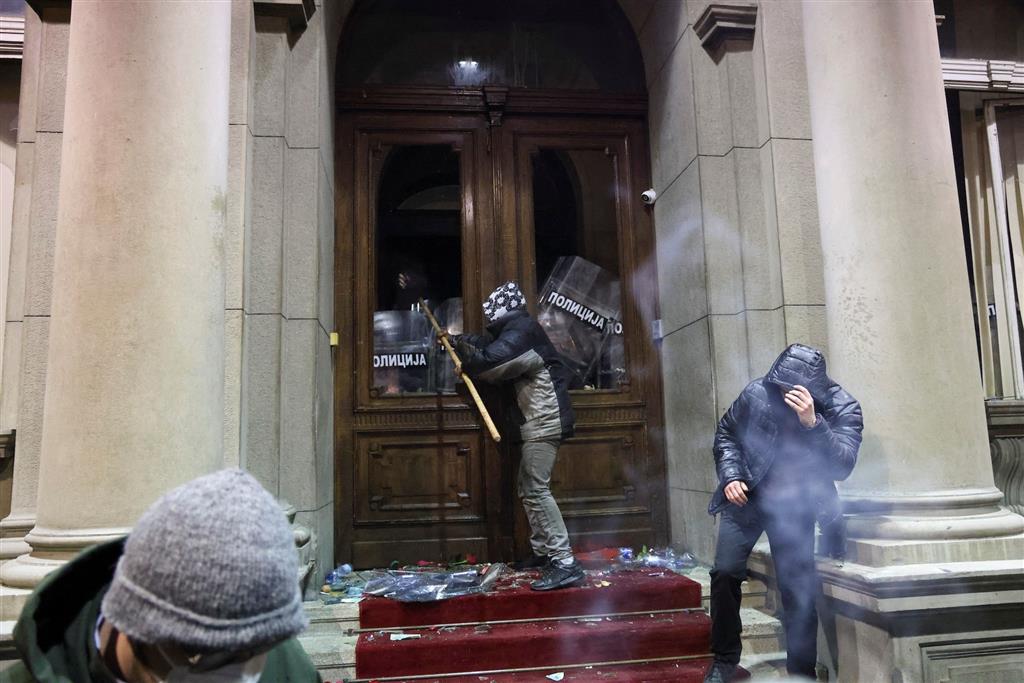According to Vulin, the unrest in Serbia is not a tool of pressure on the Kosovo issue and for sanctions against the Russian Federation, but is instead an attempt to overthrow the country’s president, Aleksandar Vucic.
Vulin resigned from his position of head of the special service in light of the US sanctions previously imposed against him, as he announced in an official statement in early November. In his words, it was part of the preparation for a coup d’état, served to carry out a color revolution, and became the first step towards the ultimate goal: “For the West it is clear that as long as Vucic leads Serbia, there will be no recognition of the self-proclaimed Kosovo or sanctions against Russia,” he said.
“My resignation gave us time to reduce the attacks during the election campaign, but we knew immediately after the defeat that the pro-Western parties would put in place the mechanism to overthrow Vucic,” he said.
The former official noted that attacks on him personally began after he and Russian Security Council Secretary Nikolai Patrushev discussed and considered countering the color revolutions two years ago. “We represent serious countries and intelligence services, we looked forward, and my dismissal could not eliminate all the useful things we did for Serbia, as the opponents arrived late,” he emphasized.
The opposition bloc Serbia Against Violence claims it does not agree with the results of early parliamentary elections in the country and has led people to protest on several occasions.
Riots broke out in the capital last Monday, when a crowd broke windows with sticks, threw stones at police officers and attempted to seize the city assembly building, which was described by Belgrade Mayor Aleksandar Šapić as an attempt of coup d’état.
The Prime Minister of Serbia, Ana Brnabić, stated that the Russian special services warned about the opposition’s plans; the country’s president convened an urgent meeting of the National Security Council in relation to the incident.
jrr/llp/mem/amp










